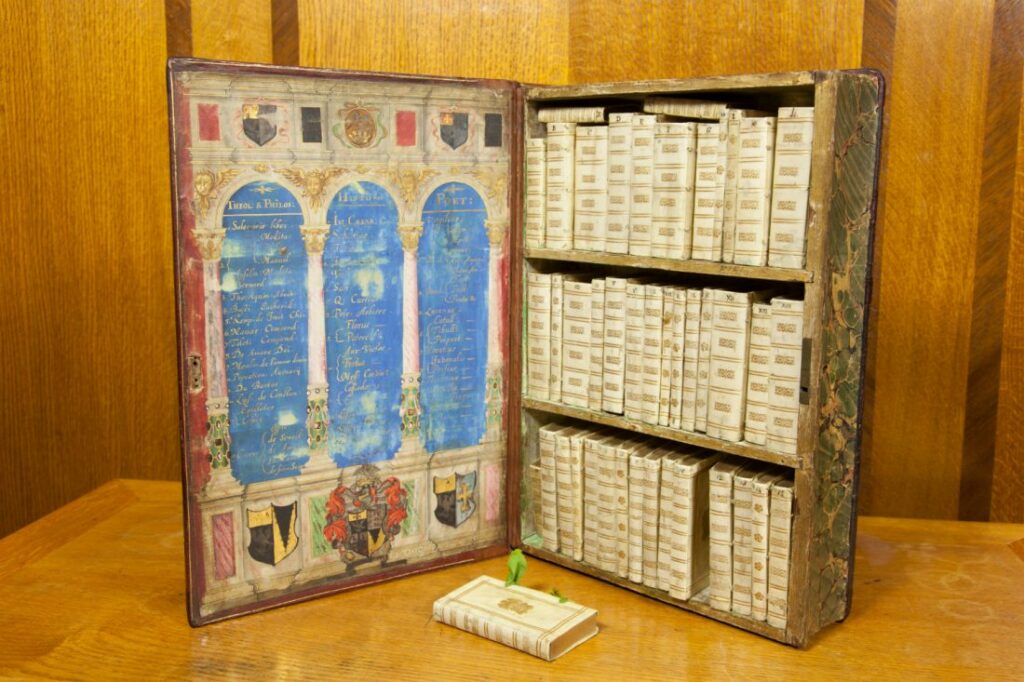
Image courtesy of the University at Leeds
In the striking image above, you can see an early experiment in making books portable–a 17th century precursor, if you will, to the modern day Kindle.
According to the library at the University of Leeds, this “Jacobean Travelling Library” dates back to 1617. That’s when William Hakewill, an English lawyer and MP, commissioned the miniature library–a big book, which itself holds 50 smaller books, all “bound in limp vellum covers with coloured fabric ties.” What books were in this portable library, meant to accompany noblemen on their journeys? Naturally the classics. Theology, philosophy, classical history and poetry. The works of Ovid, Seneca, Cicero, Virgil, Tacitus, and Saint Augustine. Many of the same texts that showed up in The Harvard Classics (now available online) three centuries later.
Apparently three other Jacobean Travelling Libraries were made. They now reside at the British Library, the Huntington Library in San Marino, California, and the Toledo Museum of Art in Toledo, Ohio.
If you would like to sign up for Open Culture’s free email newsletter, please find it here.
If you would like to support the mission of Open Culture, consider making a donation to our site. It’s hard to rely 100% on ads, and your contributions will help us continue providing the best free cultural and educational materials to learners everywhere. You can contribute through PayPal, Patreon, and Venmo (@openculture). Thanks!
Related Content:
Napoleon’s Kindle: See the Miniaturized Traveling Library He Took on Military Campaigns
The Harvard Classics: Download All 51 Volumes as Free eBooks
The Fiske Reading Machine: The 1920s Precursor to the Kindle
